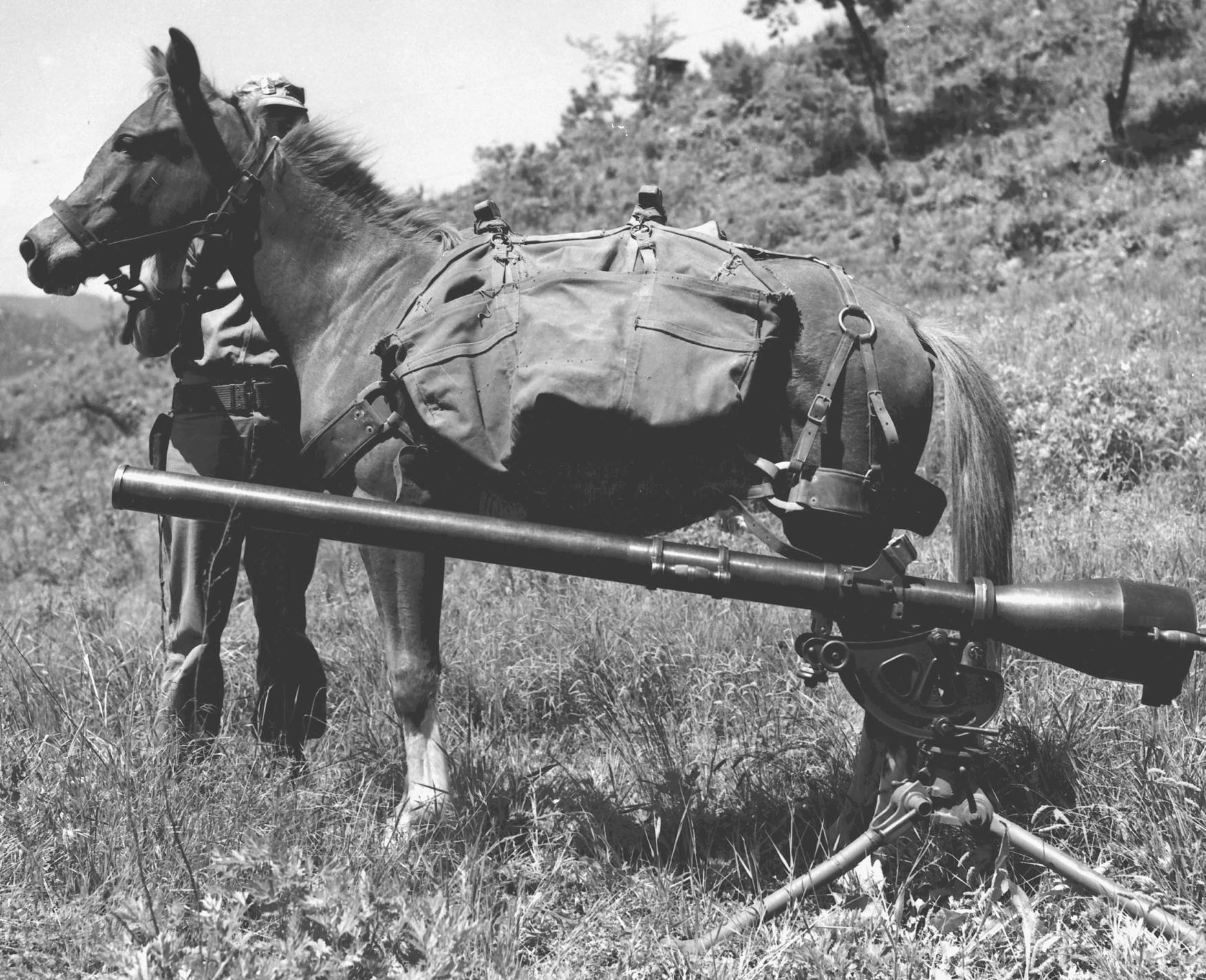“Horses are flight animals, but Reckless ran toward the danger because she knew the guys needed her,” wrote Robin Hutton, author of Sgt. Reckless: America’s War Horse.
On the morning of March 26, 1953, under the concussive barrage of more than 500 mortar and artillery rounds per minute, and where 1,000-pound bombs had completely erased the crest on the mountaintop ridge, Reckless the service horse remained unfazed as she huddled next to the men of the Recoilless Rifle platoon, 5th Marines.
That morning, the Chinese People’s Volunteer Army had launched an all-out attack on the outposts UN forces dubbed “the Nevada Cities.” The outposts of Vegas, Reno, and Carson, running north along the defensive main Line of Resistance, all came under a fierce assault from PVA forces.
In one of the last, but fiercest actions of the Korean War, the men of the Recoilless Rifle platoon quickly became pinned down as Chinese soldiers attempted to breach Vegas’s perimeter. The Marines, in desperate need of fresh ammunition were soon greeted by the welcome sight of Reckless, head bowed as she scaled the 45-degree incline, carrying rounds upon rounds of munitions to the besieged men, writes History.com.
“I looked back at the eastern skyline through all the smoke and swinging flare light and could hardly believe my eyes,” Sergeant Harold Wadley, a veteran of the Battle of Outpost Vegas, recalled at the unveiling of a statue of Reckless at Camp Pendleton in 2016. “Surely an angel must have been riding her.”
Traveling alone for most journeys, in one day Reckless made 51 trips to the outpost, ultimately carrying 386 artillery rounds that weighed nearly 9,000 pounds. So beloved, Marines at times would use their own flak jackets to cover the mare.
“She was a critical lifeline to the guns that were firing in support of us,” wrote Wadley in a foreword to Hutton’s book.
But Reckless was not done. Fighting exhaustion and fear, the horse continued to carry and shield wounded Marines down the hill’s slope for medical treatment. For her efforts Reckless sustained two shrapnel wounds, earning her a pair of Purple Hearts.
Reckless hadn’t always been trained for war, however. Born at a Seoul racetrack in 1948, her owner Kim Huk Moon named her Ah-Chim-Hai or “Flame of the Morning” and bred her to be a racehorse. When war broke out two years later, a desperate Moon sold the young mare for $250 to Lieutenant Eric Pedersen, commanding officer of the 75mm Recoilless Rifle Platoon, 5th Marines. In need of money, Moon had sold his beloved horse in order to buy a prosthesis for his older sister who had lost a leg in a land mine accident.
The racehorse soon became a workhorse, trained to carry 24-pound ammunition shells and other supplies across craggy terrain and go where trucks could not reach. While the name suited her after her actions on the hilltop in March of 1953, the mare was originally christened “Reckless” for the work she would be doing––resupplying recoilless rifles, known as “reckless rifles.”
Trained by Technical Sergeant Joe Latham, Reckless was quickly acclimated to the weight of ammunition packs and trained not to bolt despite the cacophonous sounds of battle.
“He taught her to step over communication lines and barbed wire,” wrote Hutton. “He yelled, ‘Incoming!’ and she would run to a bunker and get down. She learned how to lay down in a trench for cover.”
Reckless soon proved her worth at Outpost Vegas. “She had become an automaton”, wrote Andrew Clare Geer in Reckless, pride of the Marines. “Fatigue had taken its toll and drained her free of nerves, but as long as they would load and unload her, she kept to her task.” For the besieged 5th Marines, the mare became a crucial lifeline.
“It’s difficult to describe the elation and the boost in morale that little white-faced mare gave Marines as she outfoxed the enemy bringing vitally needed ammunition up the mountain,” Sergeant Major James E. Bobbitt recalled.
Despite the five-day battle ending inconclusively, Reckless became a beloved member of the
75mm Recoilless Rifle Platoon. On April 10, 1954, she was promoted to sergeant while still in Korea and then staff sergeant after being stationed at Camp Pendleton. She is the only animal to have ever be awarded an official rank in the Marine Corps.
SSgt. Reckless retired six years later on November 10, 1960 and died on May 13, 1968. She is buried with full honors at Camp Pendleton.





